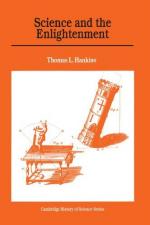
|
Chapter 1, The Character of the Enlightenment
• The 16th and 17th centuries were times of great scientific advances, especially in mathematics. This period was known as the "Scientific Revolution" and many of the scientists saw the 18th century as a culmination and continuation of that revolution.
• Some of the key advances made in the late 17th and early 18th century were in mathematics, specifically the development of calculus and analytic geometry. Progress in mathematics helped foster optimism about the powers of pure reason in general.
• Many enlightenment thinkers believed that it was possible to understand truths about the natural world and even about God without resorting to direct revelation but rather by using reason.
• At the beginning of the enlightenment the current division of the science into disciplines such as physics, chemistry, biology, botany did not exist. All natural scientists considered themselves natural philosophers and their research would often...
|
This section contains 1,163 words (approx. 4 pages at 300 words per page) |

|




